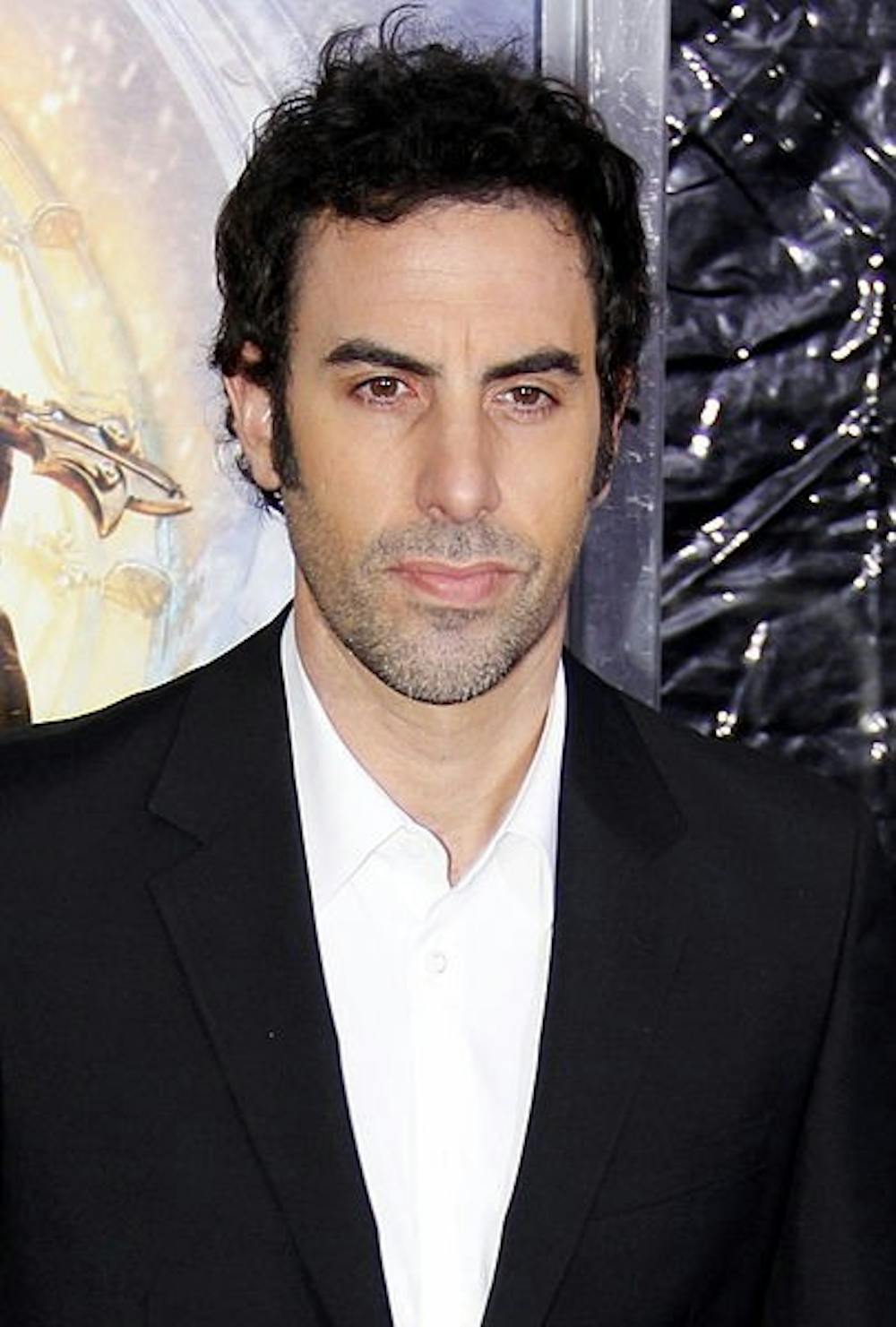There is no way to review The Spy, Netflix’s new show about Israeli agent Eli Cohen, without talking extensively about the brilliance of Sacha Baron Cohen. It’s true that the history behind the show is fascinating and that there are some incredible side stories as well. There’s no question that there are distinctive and remarkable artistic decisions taken by the director and cinematographer in almost every episode.
But at the end of the day, it all comes down to the breathtaking performance by the man best known for running stark naked through a hotel and pranking Sarah Palin.
The show starts, as many historical shows do, at the end, telling you that Eli Cohen does eventually get caught and at the very least gets his fingernails ripped off (there aren’t many scenes of torture in the show, but what is depicted can be fairly graphic at times).
However, the rest of the show is fairly linear, which works much better for the overall narrative that The Spy is going for. Eli begins as an Egyptian Israeli who once helped Jews escape over the border into Israel; now, he’s looking to get out of a boring job and into the Mossad, the national Israeli intelligence agency, to which he applies twice before finally being accepted.
His desire to aid Israel in the pre-1967 era during which the country was constantly under existential threat is certainly relatable (though I’ll admit as a Jew who spent a gap year in Israel, I’m not exactly unbiased), and his portrayal of that deep desire to save his country from extinction is truly moving.
His depiction of everything in the show is phenomenal. The way he switches accents and fakes an entire personality shows off his talent as a spy so perfectly and can at times fully paper over many of the flaws that the show does have.
The Spy can essentially be broken down into two halves — the story of Eli and his wife, and everything else. The former, which in fairness makes up the vast majority of the show, is almost always excellent. Eli’s wife Nadia, played by Hadar Ratzon Rotem, has to deal with raising two children without her husband, who disappears for up to a year at a time without being allowed to tell her what he’s actually doing or even where he is.
Her struggle is at times painful to watch, but her performance is brilliant as well, and when she and Eli are together their chemistry is fantastic, albeit heartbreaking.
However, it must be said that there are a lot of things going on in the show that are not nearly as interesting or as compelling. For example, there is a subplot implying that Eli’s handler wants to sleep with Nadia that goes on for far too long. There’s another subplot focusing on how a friend Eli makes in Syria is implied to be gay and interested in him, a plotline that I do not hesitate to say goes absolutely nowhere.
At times, the artistic direction of the show is also far too complicated for its own good. It sometimes feels like the show is conflicted between two purposes: telling the story of Eli Cohen or showing off how cool and artsy it can be, purposes that at times do not work well together.
The parts of the show that take place in Israel are almost always in a weird, colorless sepia tone, while the parts in Syria take place in full color. The reasoning for this is entirely unclear, and the scenes that take place outside of the Middle East are a seemingly random mix of color or no color depending on whether Eli is there or not, leaving the viewer confused and quite frankly frustrated by the whole aesthetic endeavor — it doesn’t really accomplish anything.
There are several moments during each episode where the cameras are angled in creative and interesting ways, at times looking through cars or from light fixtures, but this can also feel particularly extraneous and unnecessary. It certainly never seems relevant to the actual storytelling itself, and can even make it harder to understand what is actually going on.
At the end of the day, though, all of these problems fade into the background for the most part when you’re busy being captivated by Sacha Baron Cohen. The scenes where he does actual spy work (scaling buildings, taking covert pictures, sending important Morse code messages) stick out as being particularly awesome. The moments where his cover is in danger and he is about to be caught are incredibly stressful and anxiety-ridden in the best way, keeping you on the edge of your seat even when it’s only the middle of the third episode and you obviously know he’s not about to get caught.
At the same time, when Nadia is all alone, with her only friend being her employer, the show plays with your emotions in the best way, making you truly feel the pain of the poor woman, wholly unaware that her husband is risking his life (and at times cheating on her) for the sake of their country and, in a sense, the lives of everyone they know.
In that vein, there is no question that Eli is a fantastic spy, both from the vantage point of history and in the show.
He is without question responsible for saving thousands of lives during his active years, with some of his accomplishments even helping Israel posthumously during the Six-Day War in 1967.
I can’t guarantee that someone without any connection to the state of Israel would enjoy the show as much as I did, but as biased as I may be, there is something truly remarkable about seeing a man give up everything he has and fooling an entire country for the sake of his people and their safety.
Best of all Sacha Baron Cohen, Borat mustache and all, does his job perfectly.





